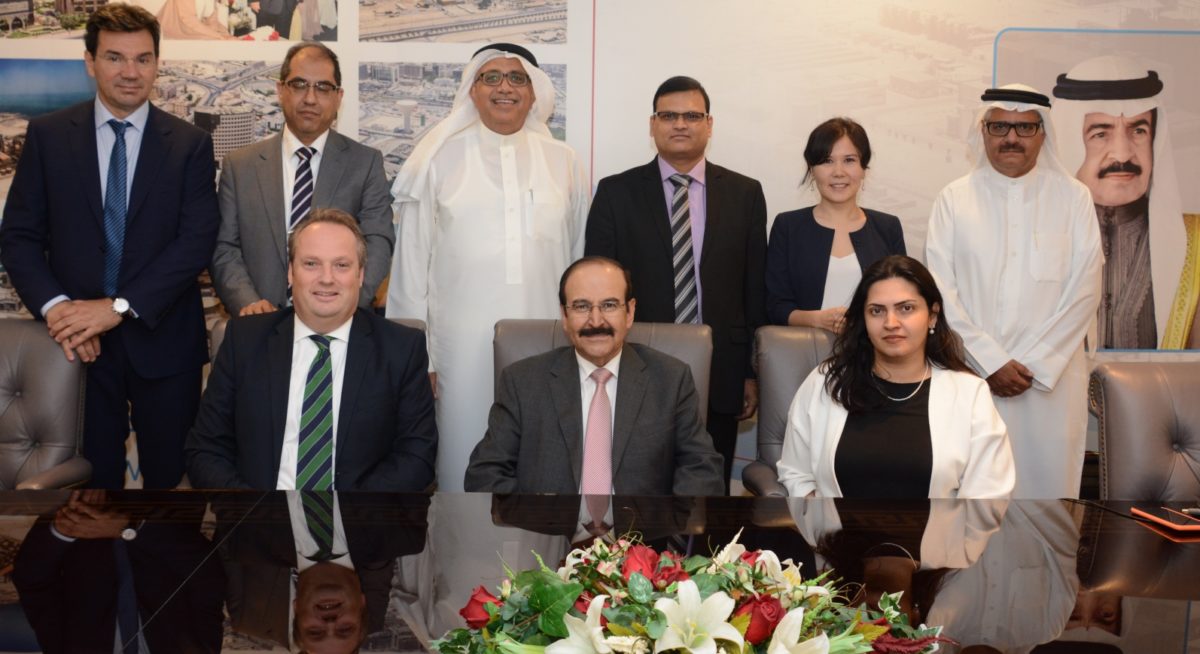Bahrain’s Minster of Electricity and Water Affairs, Abdul-Hussain Ali Mirza, has announced that Italy’s consulting and engineering company SECI was awarded the contract to support the country’s Sustainable Energy Unit (SEU) implement a net metering scheme for distributed solar generation.
The Italian company has been hired to develop the technical and strategic regulatory requirements related to connecting distributed renewable energy resources into Bahrain’s national Electricity Grid, owned by Electricity and Water Authority Bahrain (EWA).
“CESI were selected after careful evaluation of a number of bids for this extensive and important assignment, and was based on the company’s track record and expertise in this undertaking, which make it a perfect fit to support the country in building a solid and sustainable framework moving forward,” Mirza said.
The SEU, which was established in November 2014 by way of a formal agreement between the Minister of Energy and the United Nations Development Programme (UNDP), has tasked CESI to develop solutions for facilitating the connection of renewable generation projects, increasing solar distributed generators and providing recommendations to speed up the growth of the PV market. Furthermore, the Italian company will have to provide recommendations on implementing a modified billing procedure and establishing grid connection guidelines and standards for decentralized solar PV systems designed for low and medium voltage distribution networks.
“Based on our experience,” said CESI CEO Matteo Codazzi, “a holistic and long-term approach to system design is key when planning variable renewables integration. Each country’s power system is unique and needs a specific approach.”
Popular content
In mid-April, Bahrain’s Ministry of Electricity and Water Affairs announced that the National Committee which supervises the implementation of the National Energy Efficiency Plan (NEEAP) and the National Renewable Energy Plan (NREAP) were reviewing the developments on the preparation of the necessary legal and technical requirements before applying the Net Metering policy for distributed generation renewable and solar energy projects.
Bahrain’s government has long been undecided between net metering and a FIT scheme to support solar distributed generation. In 2016, the United Nations Development Programme (UNDP) announced that Bahrain’s Sustainable Energy Unit (SEU) was seeking qualified renewable energy experts for a short-term assignment to develop a FIT or net metering policy.
Bahrain’s energy strategy, which includes the development of both distributed generation and large-scale solar, sets the national target of renewable energy in the Kingdom of Bahrain at 5% by 2025 which will be further boosted to become 10% by 2035. Currently, the country has only one PV project in development, a 5 MW hybrid wind-solar pilot project being implemented by German company Juwi International and overseen by global consultancy firm Fichtner.
This content is protected by copyright and may not be reused. If you want to cooperate with us and would like to reuse some of our content, please contact: editors@pv-magazine.com.



1 comment
By submitting this form you agree to pv magazine using your data for the purposes of publishing your comment.
Your personal data will only be disclosed or otherwise transmitted to third parties for the purposes of spam filtering or if this is necessary for technical maintenance of the website. Any other transfer to third parties will not take place unless this is justified on the basis of applicable data protection regulations or if pv magazine is legally obliged to do so.
You may revoke this consent at any time with effect for the future, in which case your personal data will be deleted immediately. Otherwise, your data will be deleted if pv magazine has processed your request or the purpose of data storage is fulfilled.
Further information on data privacy can be found in our Data Protection Policy.